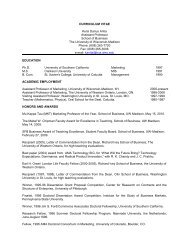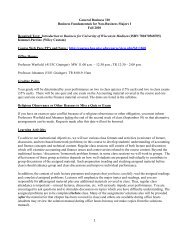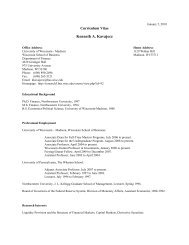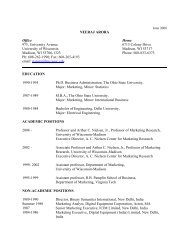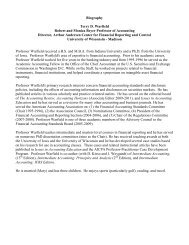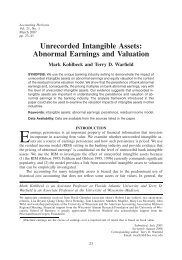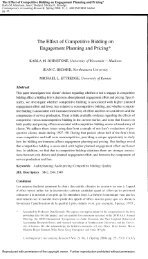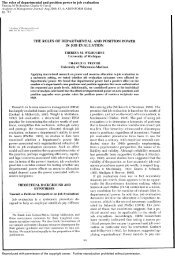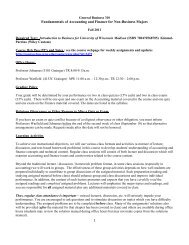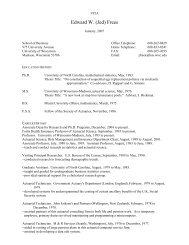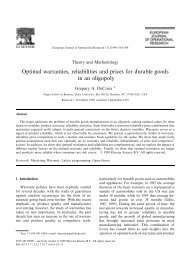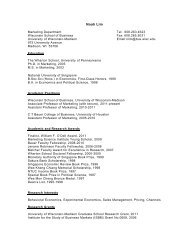family legacies - Wisconsin School of Business - University of ...
family legacies - Wisconsin School of Business - University of ...
family legacies - Wisconsin School of Business - University of ...
Create successful ePaper yourself
Turn your PDF publications into a flip-book with our unique Google optimized e-Paper software.
Family Legacies<br />
the <strong>family</strong>. This data provides some evidence that <strong>family</strong> <strong>legacies</strong> get extended out and narrowed<br />
down into strands <strong>of</strong> meaning so that people’s daily interactions are affected outside the <strong>family</strong>.<br />
Although this study provides insight into how individuals respond to <strong>family</strong> <strong>legacies</strong>, the<br />
results should be interpreted with caution given the limitations <strong>of</strong> the research design. First, we<br />
only captured one generation’s perspective, and thus, these data do not fully capture differences<br />
within and across different generations <strong>of</strong> the same <strong>family</strong>. Future researchers should incorporate<br />
participants in previous generations to see how the <strong>legacies</strong> affect their individual identity<br />
differently based on their life stage. Though third generation <strong>family</strong> members represent an<br />
important population to study with regard to narrative identity, the participants were selected in<br />
part due to ease <strong>of</strong> access. The fact participants received credit for participating in the interview<br />
process also raises ethical concerns as students may have felt an obligation to manufacture<br />
<strong>family</strong> stories and to indicate that these stories have influenced their identities. Future research<br />
should select a more diverse group <strong>of</strong> participants from across generations. Second, as<br />
researchers taking a “small story” approach have argued (Bamberg, 2006, Watson, 2007)<br />
analysis <strong>of</strong> the content <strong>of</strong> “big stories’ makes it more difficult to focus on how identity emerges<br />
in interactive process and to demonstrate the fluid nature <strong>of</strong> identity. While we focused on<br />
certain aspects <strong>of</strong> the storytelling process, this was not our primary focus. Research focusing<br />
more specifically on the storytelling process, including how identity emerges in interaction, is<br />
warranted.<br />
Despite the limitations, the findings in this study provide a more detailed picture <strong>of</strong> how<br />
third generation <strong>family</strong> members embrace, extend, and reject <strong>family</strong> <strong>legacies</strong>. This research also<br />
speaks to the importance <strong>of</strong> context in the storytelling process. Family stories do help to create<br />
both <strong>family</strong> and individual identity across generations. While previous research has examined<br />
37



